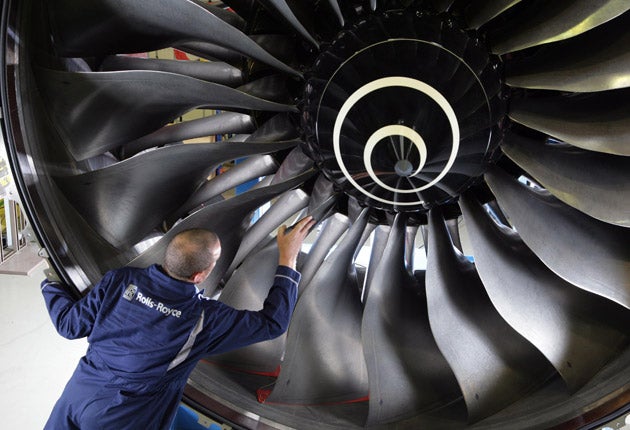It seems the unexpected could really be happening.
British manufacturing is staging a robust comeback that could even help to haul the economy back to sustained growth.
According to the Engineering Employers Federation (EEF), the manufacturing sector will outperform the rest of the economy next year. However, the EEF says this hinges on continued recovery in overseas markets. Truth is, manufacturing has been on a firm path to recovery since 2009 anyway. Consequently, investors should not casually dismiss the proud boast by the EEF as empty rhetoric. After all, manufacturing does account for about a sixth of the economy. That said, it is important to pick through the recession-hit manufacturing rubble and identify those companies with a strong competitive edge.
The aerospace industry is one in which the UK does have an edge. It is ranked among the global top flight, with an annual turnover of about £20bn. A standout company in the sector is Rolls-Royce, which has a significant global presence. It generates about a third of annual turnover from the US, a quarter from Asia, a fifth in Europe. Britain accounts for about one-seventh of its annual sales.
Admittedly, Rolls-Royce could have done without the turbulence caused by faults that developed in its Trent 900 engines. However, the engine defect has been identified and repairs are now in progress. What's more, the engine maker has picked up orders worth about $3bn from two separate Chinese airlines.
Investors need to tread carefully, though, because Rolls-Royce is not an easy company to value by the usual measures. This is because individual contracts take place over quite long timescales. But what we can say about Rolls-Royce is that it has been paying a steady dividend.
The lucrative contracts inked at Rolls-Royce are some of the many deals that will help to accelerate growth in manufacturing output. According to the Office for National Statistics, factory output grew 0.6 per cent in October, which was twice the expected rate and the highest since March. In the three months to October, growth of 5.6 per cent was the strongest since 1994.
For some players in the manufacturing sector, growth has never been a problem. For example, Weir Group, which makes pumps for the mining, oil and gas and industrial sectors, has delivered five years of unbroken growth. Between 2005 and 2010, Weir's turnover grew by 70 per cent and profits more than doubled. To match the increasing profits, Weir has been rewarding investors with year-on-year dividend increases.
The outstanding performance at Weir confirms findings by the British Chambers of Commerce that growth in manufacturing could be strong this year – at least 3 per cent. However, Weir added a note of caution for investors. It said conditions in the Canadian and UK general industrial markets remain challenging. Nevertheless, analysts are forecasting that its profits will grow 70 per cent this year.
One of the keys to improving performance is the ability to raise prices in times of inflation. Interestingly, the EEF has found that the balance of firms planning to increase prices climbed to its highest in more than two years. It would seem that companies now have the confidence to pass on higher commodity prices and some intend to rebuild margins that shrank during the recession.
The ability to maintain margins is not something that valve-maker IMI has had to worry too much about. IMI's outward appearance may be that of a boring manufacturer in a commoditised market. But to those in the know, it produces specially engineered valves for the power generation industry. The critical nature of its products may help to explain why IMI has been able to maintain operating margins at around 12 per cent over the past five years.
Without question, manufacturers have benefited from improved confidence, a lower pound and inventory restocking. However, Britain has always been strong in high-value manufacturing. It is just not very good at commoditised metal bashing.
David Kuo is director of financial website www.fool.co.uk
Subscribe to Independent Premium to bookmark this article
Want to bookmark your favourite articles and stories to read or reference later? Start your Independent Premium subscription today.


Join our commenting forum
Join thought-provoking conversations, follow other Independent readers and see their replies
Comments